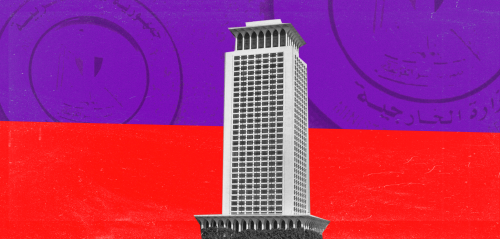A statement by the former head of the Constitutional Review Committee (2014) and the new Senate Undersecretary Bahaa Abu Shaqqa has sparked widespread anger among Egyptians working abroad, and ridicule from citizens within the country. The uproar came after the former head of the Wafd Party called for the state to deduct a percentage of the income of Egyptians working abroad for the benefit of the state. He proposed that the percentage of the expatriates’ pay would be allocated to the Egyptian state on a compulsory basis, in a bid to contribute to filling Egypt's need for scarce foreign currency.
Abu Shaqqa's statements, which he later retracted following the negative response, came at a time when the authorities are seeking to remedy the crisis of declining remittances from Egyptians working abroad through official channels, since the current economic crisis began to unfold in February of last year.
A guaranteed source
Remittances from those working abroad have always been the largest sources of foreign currency for the Egyptian economy, exceeding the income obtained from tourism revenues and the Suez Canal in some fiscal years. What distinguishes this resource is that it is not associated with any cost or debt to the state, and it has been on the rise continuously since the seventies.
Even as the structural crisis that the economy has been suffering from in recent decades continues, due to a widening trade balance deficit, thanks to the high import bill, the decrease in exports, and Egypt's limited foreign exchange resources, the remittances of Egyptians have gone in the opposite direction, rising year after year unlike the rest of the state's resources.
With a devaluing pound and increasingly scarce US dollar, Egyptian expats are looking beyond Egypt’s central bank to exchange remittances. In this report, Raseef22 investigates how the black market came to control the flow of foreign currency into Egypt
What concerned us most while working on this in-depth investigation was finding out how workers' remittances are smuggled into Egypt outside the banking system. And how is this process organized? And what is the fate of the collected hard currency, and how is it smuggled back in?
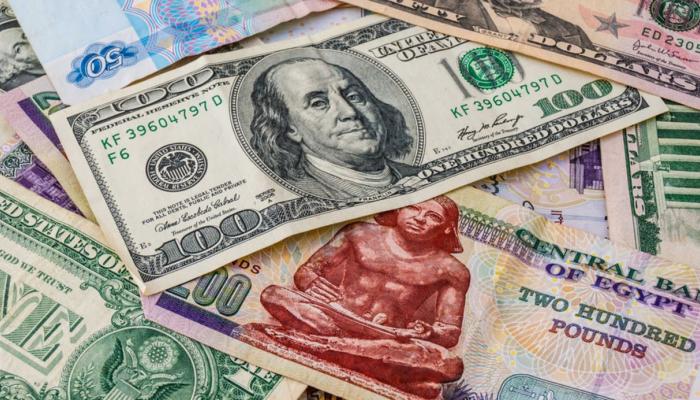
Figures and statistics from previous years show a continuous increase in the rate of remittances from Egyptians working abroad. The value of these transfers during the last ten years is estimated at about $258 billion, more than 12 times the total value of IMF loans obtained by Egypt during the last seven years (2016-2023) amounting to $21 billion.
Its value is also more than the total amount of Egypt's officially announced external debt, which has amounted – until last December – to $155 billion. In just ten years, remittances account for 64 percent of the economy's gross domestic product (GDP), which amounts to $404 billion.
All this has made Egypt top the list of the largest Arab countries in terms of receiving remittances from expats and workers abroad.
The increase in Egyptians’ remittances is due to their keenness to provide income for their families whom they support. Their remittances were the lifeline for the economy during the Covid pandemic, the nationwide lockdown, and the disruption of some economic activities, as remittances recorded historic levels. It represented a major bulwark against the Egyptian government during this crisis, which the government blames in part for its current economic crisis.

In 2020, the pandemic cast a shadow over all economic sectors without exception, at the head of which was the tourism sector, whose revenues did not exceed $4.4 billion during that year. Suez Canal revenues for the same period did not exceed $5.9 billion. Fortunately for the government, remittances from Egyptians abroad remained heading in the opposite direction, recording significant increases during the fiscal year 2020/2021 at a rate of 13.2 percent, with a value of about $3.7 billion, thus achieving its highest historical level of about $31.4 billion.
But everything has changed since March 2022, with the escalation of the economic crisis, and the exit of about $25 billion in hot money, which was predicted before it happened by Raseef22 experts in our reports published since November 2021, before the Russian-Ukrainian war, which the Egyptian authorities hold responsible for the crisis.
As the central bank began to adopt a flexible rate policy, the Egyptian pound fell against the dollar, accompanied by the rise in the prices of energy and basic food commodities, and with them inflation rising to record levels. Thus, remittances from Egyptians abroad have become the government's hope, but the movement of the market has caused the loss of that hope.
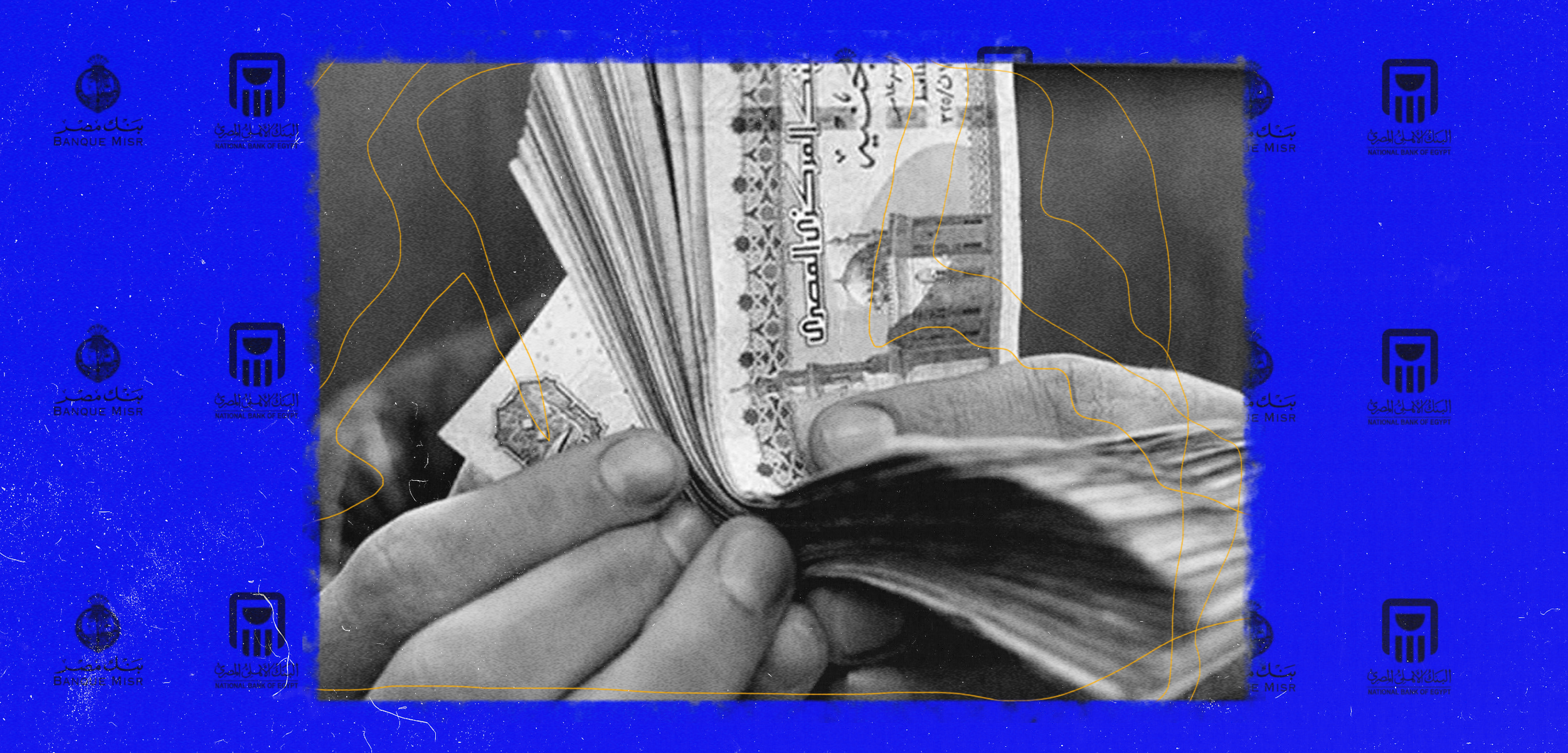
More immigrants, less money
Central Bank data released last November revealed that the remittances of Egyptians working abroad witnessed a decrease during the first quarter of the current fiscal year (from June 2022 to September 2022), by 21%, compared to the same period of the previous fiscal year. It recorded just $6.4 billion compared to the $8.1 billion during the same period in the previous fiscal year. Although the number of Egyptians abroad is increasing, which by default means an increase in foreign currency remittances, what is happening is the opposite.
Neither the central bank nor the government revealed the reasons for the decline of Egypt's precious golden goose that continuously generates dollars in state coffers, which is a matter that requires investigation and finding out its causes.
Egyptians expats disclose that dollar scarcity and a devalued pound, and how they see the local currency's official rate not reflecting its real purchasing power, are all reasons why they resort to informal channels to send money to their families at home
Finding those responsible
The outcome of Raseef22's investigation concurred with the analysis of financial experts, bankers, and international financial houses regarding the modest impact of the monetary policies adopted by the Central Bank of Egypt in stimulating the import of foreign currencies through various means, including remittances from Egyptians working abroad. The reluctance of workers to transfer their money through official means to support their families or other individuals, cannot be separated from the declining trust in Egypt's fiscal policies and the banking system, which in turn are linked to the structure of the stifling economic crisis that the country is going through with no solution or clear end in sight.
Egyptians working abroad who spoke to Raseef22 have disclosed that the consequences of the scarcity of dollars at home, the devaluation of the pound, and them viewing how the official rate of the local currency doesn’t reflect its real purchasing power, are all reasons why they resort to informal channels to deliver money to their families at home, depriving the formal economy of its most important sources of foreign currency.
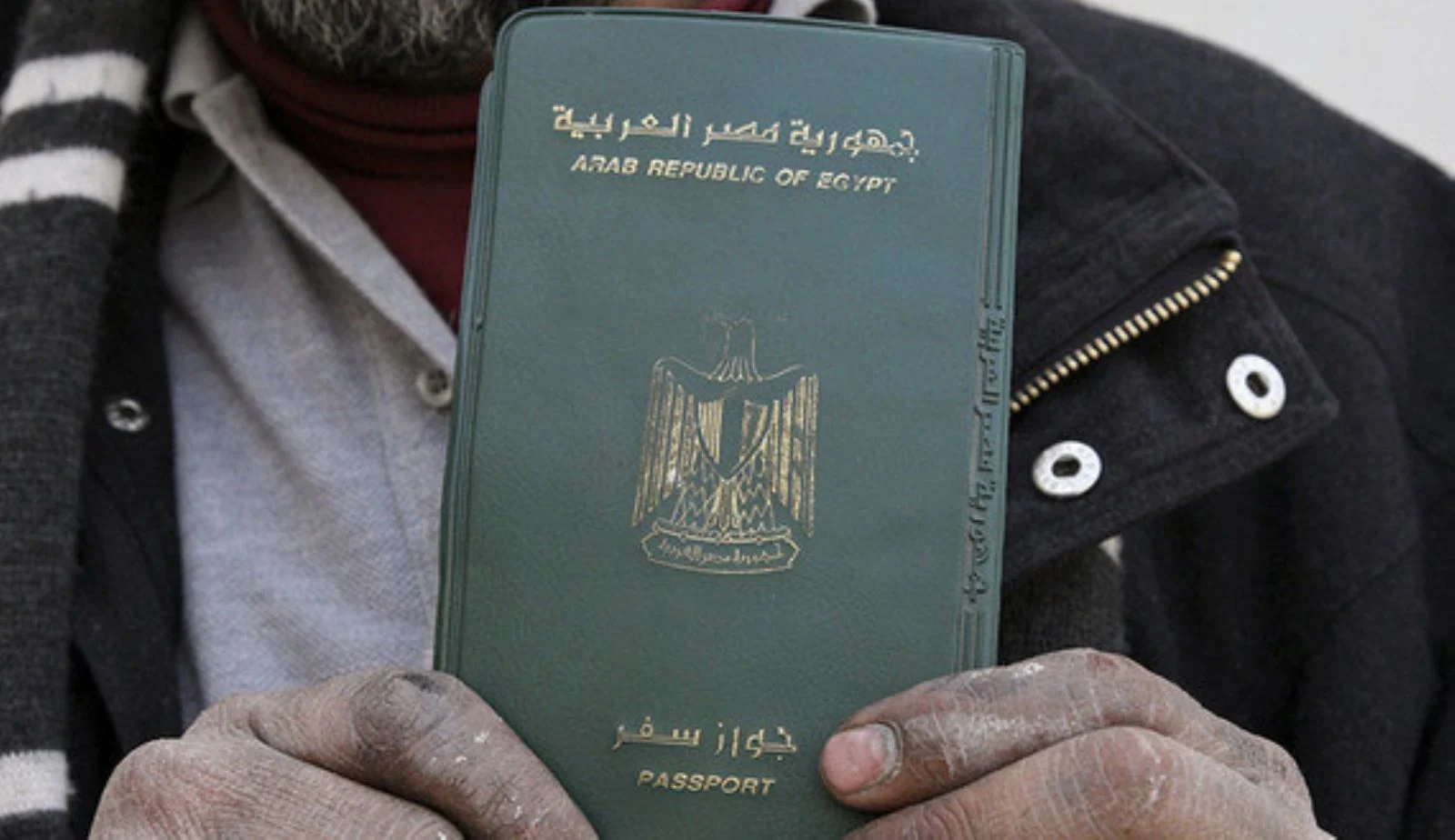
“Arm-twisting”
The role of the black market escalates when the state suffers from the lack of foreign currency, as it becomes a haven for citizens, importers and businessmen to provide their needs of foreign currency, and in light of the turmoil of the exchange market, workers abroad prefer to sell the hard currency in their possession to the black market, which gives them a price greater than its official counterpart.
In this investigation, Raseef22 attempts to monitor how the black market has come to control the flow of foreign currency into Egypt. By communicating with 10 Egyptian workers abroad, most of whom reside in Gulf countries, we discovered the existence of a currency trading system parallel to the official market (banks, licensed ATMs that are now effectively closed) – within Facebook groups for expats who work abroad, as well as in black market groups that include large networks of brokers at home and abroad, bearing in mind that collaborators with foreign figures residing in Egypt control the transfers of Egyptians' money to the inside. We spoke with Omar Ali, who works in the Saudi city of Jeddah, and is just one of many others who have resorted to transferring their money through currency dealers abroad.
After his savings that he'd deposited in Egyptian banks lost half their value due to the devaluing pound, Omar decided to withdraw them, but the bank forced him to give up a large part of them, which made him stop transferring his money to Egypt altogether
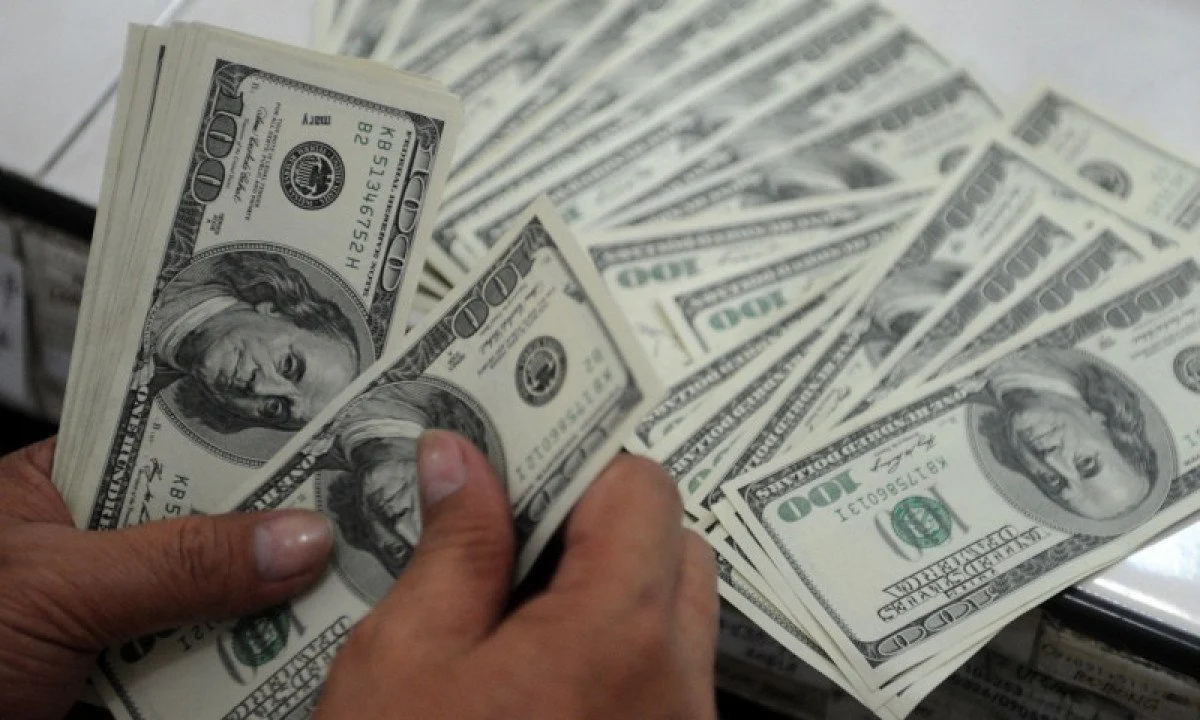
In a conversation that we keep recordings of, Ali tells Raseef22 that he resorted to transferring money through an intermediary because of routine procedures and what he describes as "”the restrictions of Egyptian banks on sent remittances”, referring to the security measures that accompany withdrawing remittances or when forcing them to be withdrawn in the local currency.
He says that he contacted "one of the intermediaries" inside the Kingdom through a Facebook group, and that he met the intermediary who took the value of the transfer from him in Saudi riyals. Then in the same moment, the intermediary sent a transfer in Egyptian pounds from a bank account inside Egypt to the account of Ali's brother, in exchange for eight pounds per riyal, at a time when the official rate of the riyal in Egyptian banks was 6.5 pounds.
Ali, who works as a graphic designer in a Saudi advertising company, explains that what prompted him to transfer money to his family outside the official channels is that he had sent a bank transfer, an amount of three thousand US dollars, to his brother in Egypt, which the latter found very difficult to withdraw from his account, "On the first day he went to cash the money, the employees at the bank told him that the amount was not available, and that he had to come tomorrow, and when he went the next day they told him that he could not collect the transfer in dollars and could instead receive it in Egyptian pounds. Under the pressure of his urgent need for this money, he was forced to withdraw it on the third day in Egyptian pounds and did not even receive the full amount."
KSA, where more than 3.5 million Egyptians live and work, represents the largest force for Egyptians’ remittances from abroad. The money transferred from KSA accounts for more than half of all Egyptians' remittances in the Gulf, with Kuwait in second place
Before this, and since he started his work in Saudi Arabia five years ago, Omar used to send his savings to Egypt, converting them into Egyptian pounds to deposit them in local savings vessels (bank deposit certificates), "but since the floating of the pound in March last year, I lost a large part of my savings due to the decline in the currency," and when he decided to withdraw these deposits in order to buy an apartment where he would live in after returning, the bank refused to release the deposits until after he came to Egypt and waived a large percentage of their value.
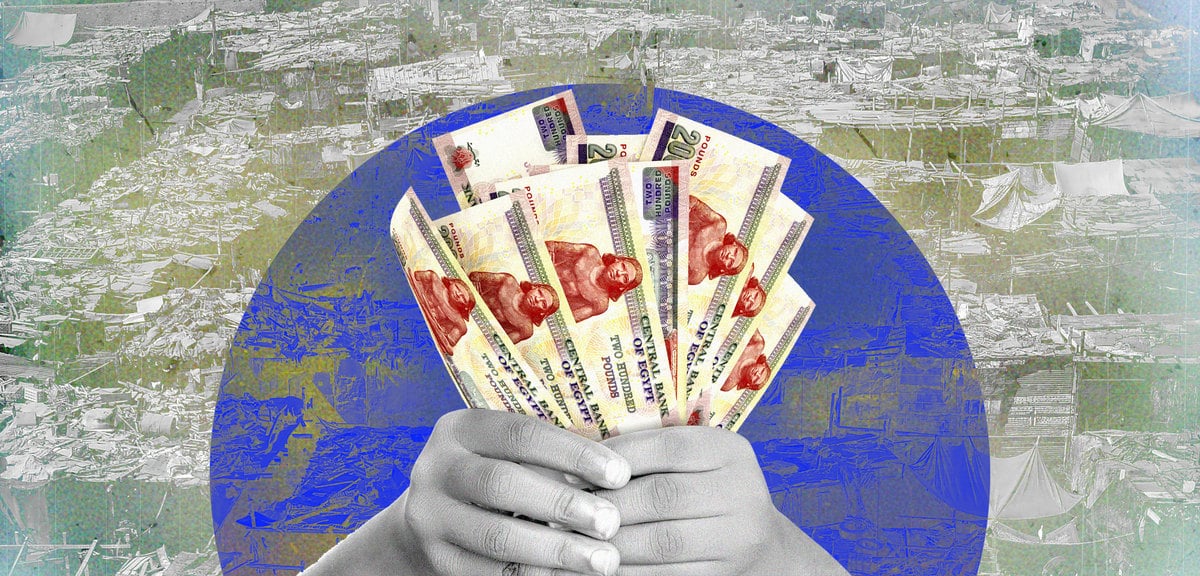
Omar says, “After working all these years, I found myself losing a large portion of my savings, and I can't even withdraw the amount in full to buy an apartment with it, and I had to forcefully lose even more of its value. I decided then to not send my savings to Egypt anymore, to keep them as they are in Saudi riyals in a bank account here in Saudi Arabia, and to just send only as much as my mother needs."
A black market
According to data from the Central Agency for Public Mobilization and Statistics (CAPMAS), Saudi Arabia, where more than 3.5 million Egyptians live and work, represents the largest force for Egyptians’ remittances from abroad. The money transferred from this Gulf country accounts for more than half of the remittances of Egyptians in the Gulf, estimated at $11.2 billion during the previous fiscal year. Kuwait ranks second, with the value of remittances of Egyptians working there amounting to about $4.4 billion, followed by the UAE with a value of $3.4 billion, Qatar with $1.5 billion, then Oman with a value of $162 million, and finally Bahrain with a value of $104.1 million.
Mohammad Abdelkader, who works as a teacher in Kuwait, says that he and his colleagues learned about the issue of transfers outside the banking system through the so-called "intermediaries" and brokers, who began appearing with the devaluation of the pound in February 2022, knowing that these brokers "have increased in number in the recent period, and they are working here in Kuwait, but in marginalized occupations and their income is low."
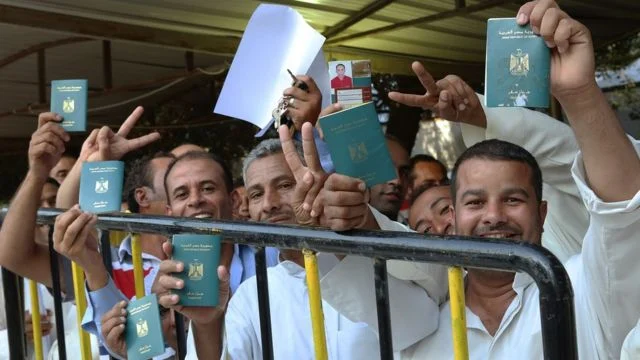
According to his experience, Abdelkader tells Raseef22 that these brokers are present in abundance, "and as soon as they know that you are Egyptian, they offer their services to exchange the Kuwaiti dinar into the Egyptian pound, and they add facilitations and accommodations by providing many transfer methods, starting with bank transfers and E-wallets such as Vodafone Cash and Etisalat Cash, or by sending the amount in the mail. And if you ask them to deliver the amount in cash to your door, they send someone to do that without hesitation. The important thing is that they get dinars. To reassure you, they send the money in Egypt before receiving the return in dinars."
As for the reasons for using this method, Abdelkader says that the ease of sending money is not the only reason why he is interested in dealing with brokers instead of banks, "There are other reasons that have to do with the huge percentage that exchange companies deduct from the sent amount. For example if you send an amount of 100,000 pounds to Egypt, exchange companies deduct about 10,000 pounds from it. Conversely, the transfer can be done via currency brokers. They send the full amount, and I even get a price of 90 Egyptian pounds per dinar, while the official rate in banks is 77 pounds." (Exchange rates at the time of communication, beginning of January 2023).
Historical mistakes
A previous report by Goldman Sachs indicates that due to the scarcity of the dollar in Egyptian banks, its price in the parallel market has become "exaggerated", which leads to a spiral of currency devaluation and high inflation, and this is what Raseef22 explained in detail in its report on the Central Bank of Egypt’s repeated historical mistakes
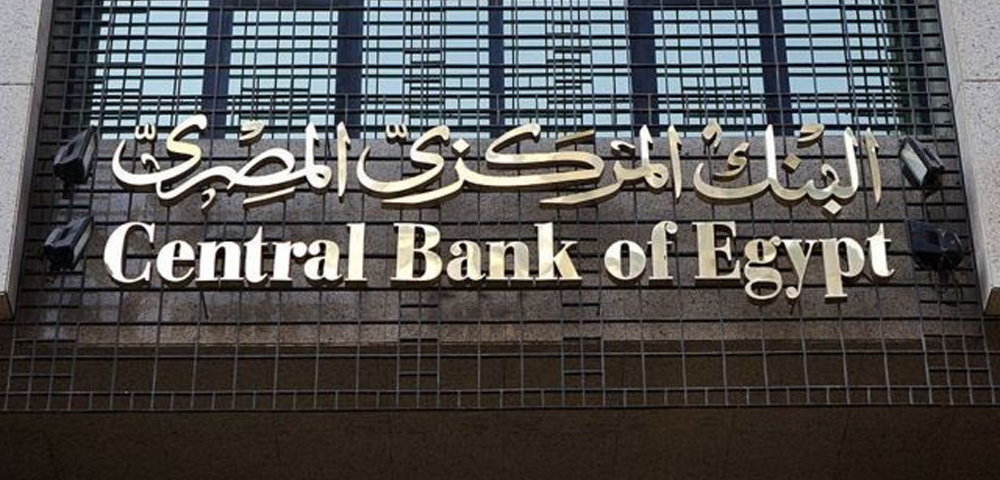
In the book "The Egyptian Economy in the Twenty-first Century", researcher Mohamed Sultan points out that "Egyptians working abroad turn into traders on the black market in times of economic crises where the state suffers from a shortage of foreign currency, even though they are not financial experts, and their decisions are not linked to their understanding of the economic fundamentals of the state.”
But when the government devalues the currency and news spreads about the scarcity of the dollar in the banking system, they realize the importance of the hard currency in their hands, after its value rose against the pound, as it should tempt them to increase their transfers to the banking system.
But what happens is the opposite, and they prefer to keep them in order to save and build up a stock of them, or by selling them to the black market, which gives them a higher price than their official counterpart.
Currency smuggler and broker to Raseef22: “The exchange process begins with an agreement with the "deputies" who work in the Gulf, most of whom are relatives and friends of the main broker who is often in Egypt to ensure trust between the two parties”
Difficult economic conditions
Ahmed Atef, 40, who lives in Bahrain, tells us about this experience even though he is still committed to bank transfers when it comes to send money to his wife in Egypt, and does not believe that he will resort to another method, even though most of the people he knows are doing it through unofficial channels.
Atef, who owns a contracting company in Bahrain, attributes the reason why most expats abroad resort to dealing with currency dealers with the right price they get. He says, "It is normal for this to happen, especially in the difficult conditions that workers live under here, as they face double pressure. On the one hand, the nature of work in the Gulf has become more difficult than ever, as a worker faces competition from workers of different nationalities and skills. In addition, the employer takes into account the rise in the currency in the Gulf countries compared to that in Egypt, and accordingly the Egyptian worker or employee is given a low salary compared to his efforts as well as compared to his peers of other nationalities, all this aside from taxes and accommodation, which increase with time. On the other hand, the workers here know the difficult living and economic conditions in Egypt through what their family members live through and recount to them, and they follow the news of the Egyptian economy, which is worsening, and this puts additional pressure on them to maintain and increase their income. It is normal in the midst of these situations to look for any profit or additional gains."

How do currency smuggling operations work?
What concerned us most while working on this in-depth investigation was how workers' remittances are being smuggled into Egypt outside the banking system. And how is this process organized? And what is the fate of the collected money, and how is it smuggled outside the legal path?
To answer these questions, we were able to contact one of the brokers who had been working in this trade until very recently. Before speaking, the man stipulated that his identity remain anonymous, especially since the interview took place in his hometown in one of the governorates of Upper Egypt (we keep a recording of his testimony that we refrain from publishing out of respect for the source’s wishes).
Jaber (pseudonym) discloses that the exchange process begins with an agreement with the "deputies" who work in the Gulf, most of whom are relatives and friends of the main broker to ensure trust between the two parties. These "deputies" buy currency from expats and workers abroad at prices higher than the official exchange rates. In return, he and a group of those who work with him in Egypt transfer the money through any and all available payment methods, from E-wallets to bank accounts, or via mail. Sometimes he personally delivers the money to any place they agree on. The most important thing for them is to obtain hard money from abroad.
Currency smuggler: "We collect the money abroad and send it in dollars to bank accounts of foreigners residing in Egypt, who are of Arab nationalities and have a registered company. The transferred amount ranges between 100,000 and one million dollars”
As for how this money is smuggled into Egypt after that, Jaber explains, “We collect the money abroad and then send it in bank transfers in dollars to the accounts of foreigners residing in Egypt, most of whom are of Arab nationalities and have a company registered in their name and a commercial register. The value of the transferred amount usually ranges between $100,000 and one million US dollars, as banks are lenient with these people in cashing amounts such as these, unlike what is happening with Egyptians, because foreign investors enjoy special privileges to encourage investment in Egypt and attract foreign currency.”
Small amounts are also sent with Egyptians and foreigners coming to Egypt from abroad, as customs at the airport allow them $10,000 dollars cash, and there are also transfers sent through exchange companies, and despite the large percentage that these companies deduct from the sent money, smugglers resort to them if they encounter a hindrance through the other methods or need huge sums in a short period of time.
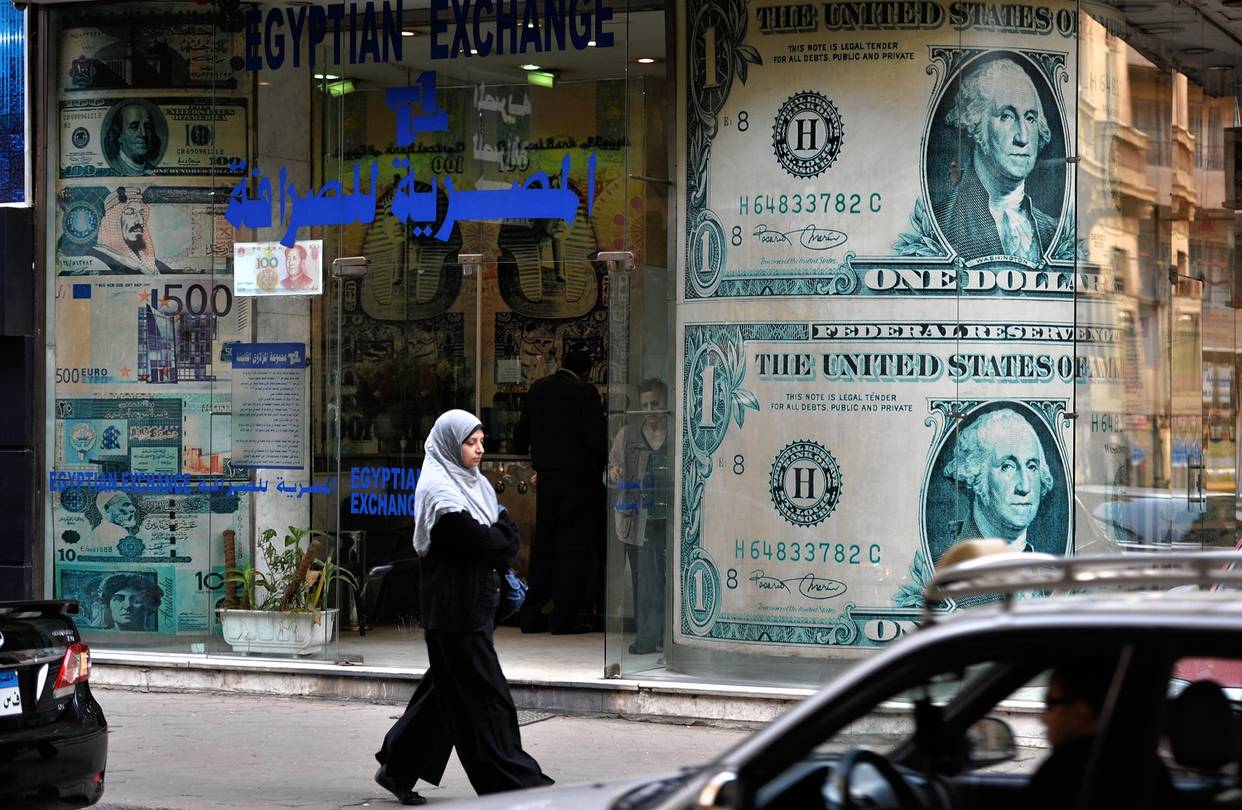
In this regard, Omar Ali says he knows an Egyptian friend who works in the currency trade and travels to Egypt three times a month, each time taking $10,000 dollars with him.
But who does this money go to?
Jaber tells us that he does not deal with anyone in his currency deals, due to the government's restrictions at home, and that he only deals with a few trusted people, "most of whom are jewelers, who in turn sell dollars to importers, and customs brokers who are not finding dollars in banks, as well as some people who want to safekeep their savings, as they provide any amount of money they need, and jewelers and goldsmiths have experience in currency trading that makes it safer to work with them.”
Ahmed Atef tells us that not all of the collected money may go to Egypt, and that most of it is sent to the external accounts of Egyptian importers, traders and business owners who obtain it in order to buy their goods or production and raw materials without going through the strict restrictions imposed by the Egyptian authorities on imports. The result is that imports are running smoothly without money entering the Egyptian banking system, which is starved for it for many reasons, on top of which is the payment of official debts.
The Central Bank of Egypt approved the law on documentary credits and placed restrictions on imports due to the lack of foreign currency to meet import requests, and prioritized the imports of basic commodities, in addition to the fear of depleting the central bank's foreign exchange reserves. Banks have taken a number of proactive decisions to set withdrawal limits and additional fees. At that time, the predictions and analysis of both economists and foreign banks began to become clear, with new rises in the foreign currency against the pound, which prompted many to start keeping it or announcing its purchase.
Importers, traders and business owners have turned to the black market to obtain foreign currency with which they can clear their goods and products piled up at ports. This is where the motive came from for black market traders and importers to look abroad for new outlets for hard currency, thus resulting in a stealthy movement to acquire remittances from Egyptian expats through the many tricks and methods, as we have previously explained. This has enabled them to seize remittances and withhold them from the banking system.
Raseef22 is a not for profit entity. Our focus is on quality journalism. Every contribution to the NasRaseef membership goes directly towards journalism production. We stand independent, not accepting corporate sponsorships, sponsored content or political funding.
Support our mission to keep Raseef22 available to all readers by clicking here!
Interested in writing with us? Check our pitch process here!


